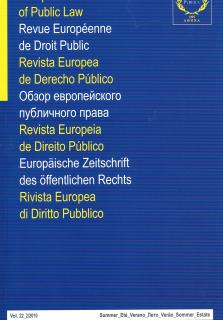
Le droit administratif face À la mondialisation
Les attentes des citoyens
(Administrative Law in the face of Globalisation
The Citizens’ Expectations)
GÉrard Timsit
Professeur émérite à l’Université de Paris 1 Panthéon-Sorbonne
The analysis of the confrontation between the two phenomena of administrative law and of globalisation supposes their previous conversion into common factors: defining, both of them, normative spaces, the first, administrative law, refers to a static normative space, unipolar and subject to a vertical or hierarchical political control, whereas the second, globalisation, refers to a dynamic normative space, informal, subject to a horizontal political control. We can estimate that, consequently to these differences, two types of fundamental transformations have been produced in the normative space defined by administrative law and due to globalisation. On the one hand, a transformation related to the very foundation of administrative law norms - to their legitimacy: it is being analysed as passing from a legitimacy of the administration purely deriving from that of political power towards an administrative legitimacy that, from now on, is meant to be dialogic - based on the dialogue between the administration and the citizens. And on the other hand, a transformation related to the function assigned by citizens to the norms in the space of administrative law, and which could be understood as passing from a classical and relatively rigid administration of control to an administration of regulation for a world in transformation, a normativity the essential function of which appears to be the remedying of both market deficiencies and of deficiencies of the traditional state hierarchy.
L’analyse de la confrontation des deux phénomènes du droit administratif et de la mondialisation suppose leur conversion préalable en facteurs communs: définissant tous deux des espaces normatifs, le premier, le droit administratif, se réfère à un espace normatif statique, uni-polarisé et soumis à un contrôle politique vertical ou hiérarchisé, tandis que le second, la mondialisation, renvoie à un espace normatif dynamique, informel, relevant d’un contrôle politique horizontal. On peut estimer que, par suite de ces différences, deux types de mutations fondamentales se sont produits dans l’espace normatif défini par le droit administratif et du fait de la mondialisation. D’une part, une mutation relative à la fondation même des normes du droit administratif - à leur légitimité: elle s’analyse dans le passage d’une légitimité de l’administration purement dérivée de celle du pouvoir politique à une légitimité administrative qui, désormais, se veut dialoguée - ancrée dans le dialogue de l’administration avec les citoyens. Et d’autre part, une mutation relative à la fonction qu’assignent les citoyens aux normes dans l’espace du droit administratif, et qui pourrait s’analyser dans le passage d’une administration classique et relativement rigide de réglementation à une administration de régulation pour un monde en mutation, une normativité dont la fonction essentielle apparaît comme étant de remédier à la fois aux défaillances du marché et aux déficiences de la hiérarchie étatique traditionnelle.





















